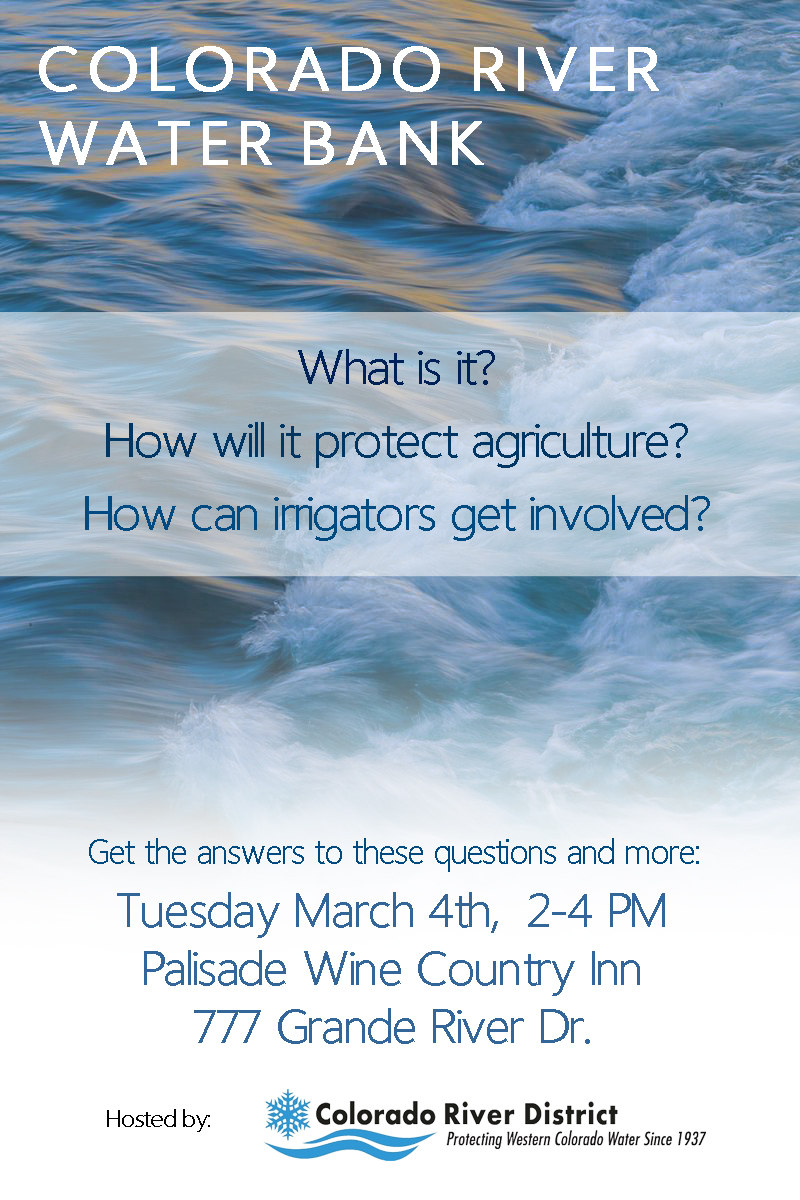
The Colorado River Water Conservation District invites farmers, ranchers, and others interested in agricultural water use to a Colorado River Water Bank Ag Forum on Tuesday, March 4th. The forum will be an opportunity for irrigators to learn about the water bank concept, ask questions, and share their thoughts. Irrigators’ input early on in the process is critical to evaluating the feasibility of the project.
The March 4th forums will be held at the Montrose Public Library from 9-11 am and at the Palisade Wine Country Inn from 2-4 pm. Each forum will include an update on current Colorado River hydrology, an overview of the Water Bank project, a question and answer session, and a chance to discuss the project and provide input.
A water bank is one potential strategy to increase security for upper Colorado River basin water supplies, and to reduce the potential for negative impacts if drought conditions persist, such as declining Lake Powell levels and a reduction of hydropower production. Because the water bank would use a voluntary, market-based approach to “bank” water from willing agricultural water users, we are
soliciting irrigators’ thoughts, reactions, and questions to this concept at upcoming meetings.
“Given the current drought situation in the Colorado River Basin, the focus on developing a State water plan, and the pressure on agricultural water use, it’s more important than ever that we sit down to discuss creative solutions like water banking that may help address our water management challenges,” said Eric Kuhn, General Manager with the River District. “Input from the agricultural community is
absolutely essential for this project.”
Additional information on the Water Bank concept and the upcoming forums can be found on the River District’s website, or by calling (970) 945-8522.

 Print
Print
Reblogged this on Coyote Gulch.
Water banking is a good idea, but it is not a comprehensive concept so long as major water basins in the State of Colorado on the western slope are left out of the process. The SW Basin is subject to a substantial trans-continental diversion to the Rio Grande drainage and yet received no compensatory storage and no effort by the State to mitigate that loss of stream flow. Including the SW Basin in developing a water banking plan would truly make it part of a statewide plan instead of a stop-gap measure for a few inside players.